Review of Jules Et Jim
Introduction
If tracing the evolution of the French New Wave from an exercise in formal liberation to polemical expressionism is your game, then Jean-Luc Godard is certainly your man: beginning with the perversely jaunty and free-flowing ‘a bout de souffle’ before gradually ditching the genre-games that defined the early New Wave in favor of developing a radical political aesthetic in ‘Week End’, ‘One Plus One’ and ‘Two or Three Things I Know About Her’ Godard’s career traces the path of naïve romanticism to bitterly didactic experimentalism. However, the temperament and character of the New Wave is best personified by that other “Cahiers” icon, Francois Truffaut, whose films are plaintive love letters to Godard’s Brechtian rants. ‘Jules et Jim’, Truffaut’s buoyant adaptation of Henri-Pierre Roche’s novel, charts the friendship between the title characters as they jostle in and out of favor with the elusive Catherine (Jeanne Moreau).
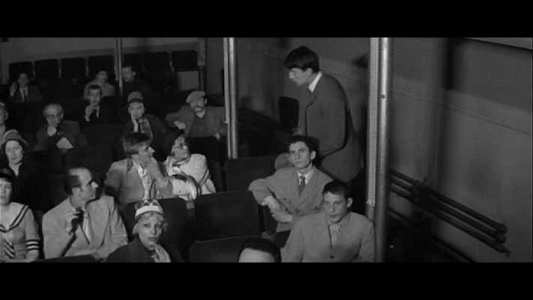
Video
As ever, Truffaut and his cinematographer Raoul Coutard utilize the `Scope format as if it was invented for them, and this quite good anamorphic transfer complements it much better than anticipated.
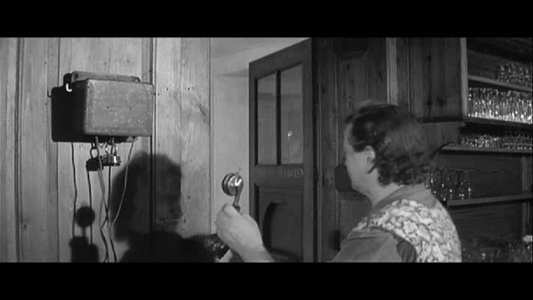
Audio
George Delerue`s music sadly hasn`t dated as well as the beautifully composed images, and one can`t help but think that the circus has come to town with booming big-band brass and percussion intruding with an excess that threatens to unbalance the delicate tone. The French mono track is serviceable enough.
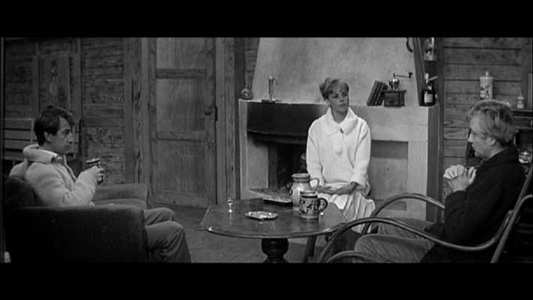
Features
A well presented and insightful collection of extras that will hopefully become a habit amongst future Tartan discs. A couple of rare archive interviews with Truffaut reveal a few priceless nuggets: Truffaut likens the book and his adaptation as like flipping through a photo album whilst modestly maintaining that he likes the book more than his film. A collection of trailers and excerpts for the Truffaut back catalogue remind all those detractors of the sheer vivacity of the New Wave within its original context, whilst offering a hands-on glimpse into Truffaut`s evolving cinematic language. The centre-piece however is the commentary track which takes the form of a retrospective interview with Moreau, still laconic and thoughtful in old age, only now with the added bonus of being fabulously gravelly-voiced after four hundred thousand too many cigarettes.
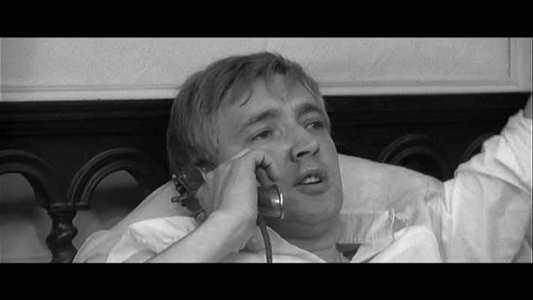
Conclusion
Although time hasn`t been kind to any of the works of the nouvelle vague, the decay is more potently expressed in Truffaut`s films than, say, Godard’s, due to the innocent naivete with which Truffaut embraced the formal innovation available to him. There`s an irresistible urge to criticize the obtrusive stylization, the clattering ADR soundtrack, the seemingly relentless dandy-isms and the portentous, declarative dialogue pronounced in a monotonously singular voice. So, whilst style and content blend to an overwrought and unbalanced whole to our jaundiced postmodern eyes, the balance of poignancy and melodrama still possesses a spirited passion that can now be seen to perfectly capture that creative zeitgeist, warts and all. The stylistic tricks that Truffaut deemed transparent to the spectator, are somewhat jarring to a contemporary audience, but the emotional distance doesn`t dampen the craving and fondness expressed, trapped as it is like human time capsules in Jeanne Moreau`s fickle iconoclasm, Oskar Werner`s quivering warmth and Henri Serre`s internalized brittleness.
Truffaut`s formal elegance and keen eye for emotional details makes for an engaging tonal oscillation between the comic and the somber, which only really loses its way in the hectically compressed conclusion that wanders too far off the emotional radar into a place of genuinely hysterical melodrama. Still, it’s hard to sour to a film that so effortlessly balances formal experimentalism with a genuine human warmth; and there’s something still rejuvenating about the unabashedly romantic embrace of the playfully profound themes: loyalty, monogamy, passion vs contentment. ‘Jules et Jim’ has undoubtedly lost its heady punch, but it’s still a potent elixir.
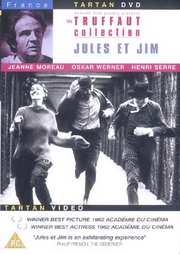
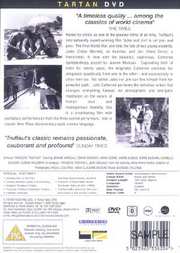




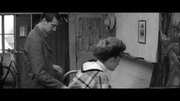
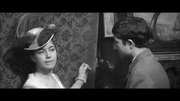
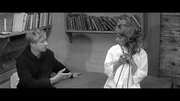
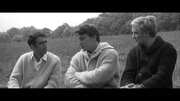
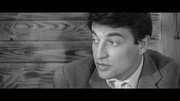
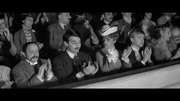
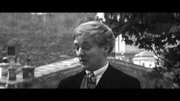
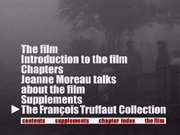
































Your Opinions and Comments
Be the first to post a comment!